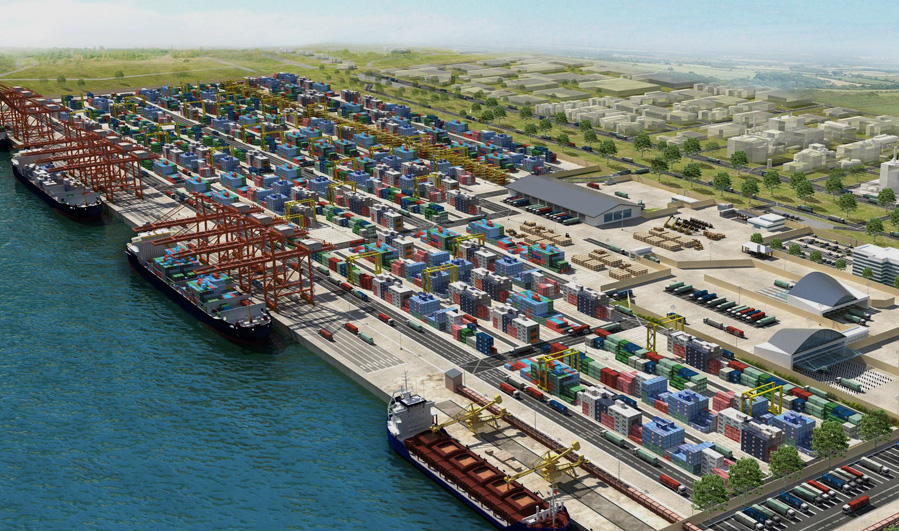Nigeria’s $1.675-billion Lekki deep sea port development has received $221 million in equity funding from China Harbour Engineering Co., the Chinese-government owned marine contractor that had earlier won the engineering, procurement and construction contract for the project that is expected to create the deepest port in sub-Saharan Africa.
Lekki Port LFTZ Enterprise Ltd., a joint venture of Singapore-based Tolaram Group (75%), Nigeria’s federal ports agency (5%); and the Lagos state government (20%), said in a statement that the Chinese funding “will greatly contribute to fast tracking the timely delivery of the project and bring about economic prosperity to Nigeria as a whole.”
China Harbour Engineering, an affiliate of China Construction and Communication Co, is executing a $680-million phase of the contract through a subsidiary, with U.S. project management consultant Louis Berger, now owned by WSP Global, having led the EPC selection process. WSP is also handling contract management, design review and construction oversight.
Other components of the port project include construction of infrastructure for water supply and distribution and wastewater treatment; a 30 MW power plant for port operations; communications networks; and acquisition of container terminal equipment such as ship-to-shore cranes at the quay and gantry stacking cranes at the container yard.
Last October, the port development joint venture announced a $629-million project debt financing deal with China Development Bank and African Development Bank for construction of the port, which first broke ground in July 2012.
The initial plan was to have the project completed within 41 months but China Harbour Engineering Chairman Lin Yichong said the company “would do all it takes to deliver this deep sea port within 30 months.”
The firm had in May 2012 edged out 18 other bidders to win the EPC contract to design, build, own, operate and transfer three container berths with total annual capacity of 2.7 million twenty-foot equivalent units (TEUs), a 4.5MT dry bulk berth and three liquid berths that can handle 16.7MT of liquid cargo.
The Chinese contractor is dredging an estimated 13 million cu m of material from the bottom of the sea. At least 4.5 million cu m of the dredged material will be used to reclaim and protect a beach area within the Lekki port and the rest dumped at designated offshore site.
The port development JV has been awarded a 45-year concession by the state port operator in Nigeria to develop, finance, build, operate, and transfer the Lekki port located within the Lagos Free Trade Zone, 65km east of Nigeria’s commercial capital of Lagos. It will recover its project costs from revenue accrued from operating the port and its associated facilities over the concession period.
The port, to be built on 90ha of Lagos Free Trade Zone land, has a 14m deep navigation channel that is 600m wide and 6km long, while the main breakwater, which is constructed of rubble mound type with concrete armor block on the outer layer, runs 1500m long. The secondary breakwater is 300m long.
A project brief says the container terminal that is linked to the port has a quay 1200m long with three container berths and a storage yard that has 15,000 ground slots.
“The strategic location, flexible and optimized layout and modern facilities provide Lekki port a distinct competitive edge over any other port facility in West African region,” the developers say.


Post a comment to this article
Report Abusive Comment